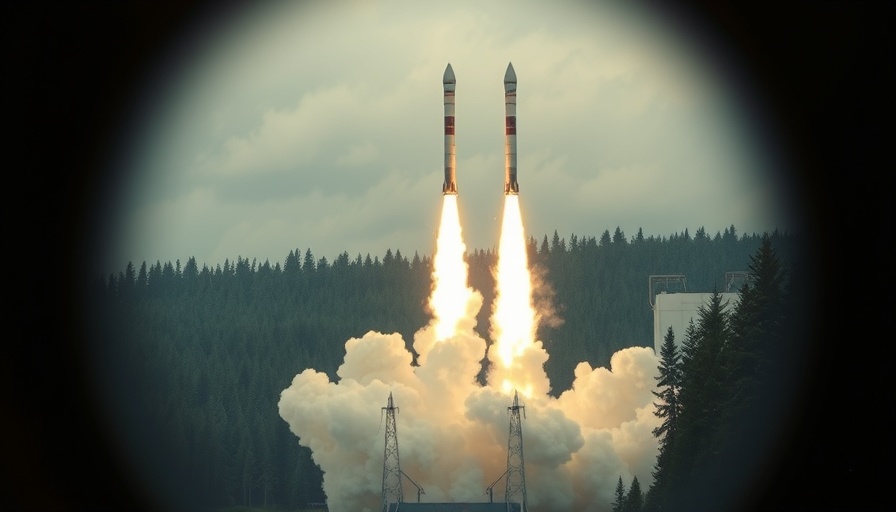
AI's Evolving Role in Military Operations
The landscape of military intelligence is witnessing a profound transformation as the U.S. military turns to generative AI to enhance its capability to analyze vast amounts of intelligence data. Recent exercises conducted by the U.S. Marines in the Asia-Pacific region have showcased real-world applications of these AI tools, whereby officers were able to process thousands of pieces of open-source intelligence more swiftly than traditional methods allowed.
This leap in technology marks a significant shift in how military operations handle complex data. By leveraging AI, the military may not only improve decision-making and readiness but also reconfigure its operational strategies in intelligence gathering. Investing in these technologies can lead to faster, data-driven insights that reflect a modernized approach to national and global security.
AI's Promises for Climate Change Mitigation
On a different front, a recent report from the International Energy Agency provides intriguing insights into how AI could be a double-edged sword in the fight against climate change. While proponents laud the technology's potential to streamline energy consumption and reduce greenhouse gas emissions, skepticism remains regarding these claims.
This skepticism is rooted in the history of carbon credit schemes, which often fell short of their intended impact. The growing criticism centers around whether AI can truly deliver on its promises, especially when its operational side also demands extensive energy resources. This burgeoning concern draws parallels with current discussions on sustainable practices within the technology industry.
Understanding the Broader Implications of AI Integration
For professionals interested in technology, healthcare, and sustainability, the dual narratives emerging from military applications of AI and its promise for environmental futures are critical. Both sides reveal the potential for revolutionary advancements while also underscoring the risks of over-reliance on technology without substantial accountability in its deployment. These developments serve as a case study in understanding the broader technological trends reshaping our understanding of operational efficiency versus ethical implications.
The Future of AI in Military and Environmental Spheres
As we look ahead, the intersection of AI technology with military operations and environmental initiatives poses both opportunities and challenges. The ongoing discussions raise essential questions about governance, ethical implications, and the balance of technological advantages against traditional methods and environmental stewardship. Professionals positioned within these industries must prepare for the implications of AI—not only in terms of operational efficiency but also regarding public perception and stakeholder trust.
Actionable Insights for Technology Professionals
In light of these insights, tech professionals can extract actionable strategies. Cultivating a keen awareness of disruptive technologies and their implications can empower businesses to innovate responsibly. Engaging in dialogue surrounding AI ethics and accountability will be essential as technology reshapes industries vastly.
In conclusion, as AI technology continues to evolve and affect key sectors like military intelligence and sustainability, staying informed and adaptable remains imperative for success. Embracing these changes head-on can guide professionals to navigate this rapidly transforming landscape effectively.
 Add Row
Add Row  Add
Add 




 Add Row
Add Row  Add
Add 

Write A Comment